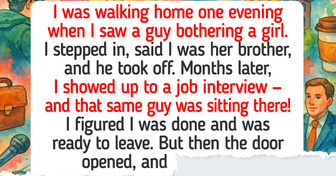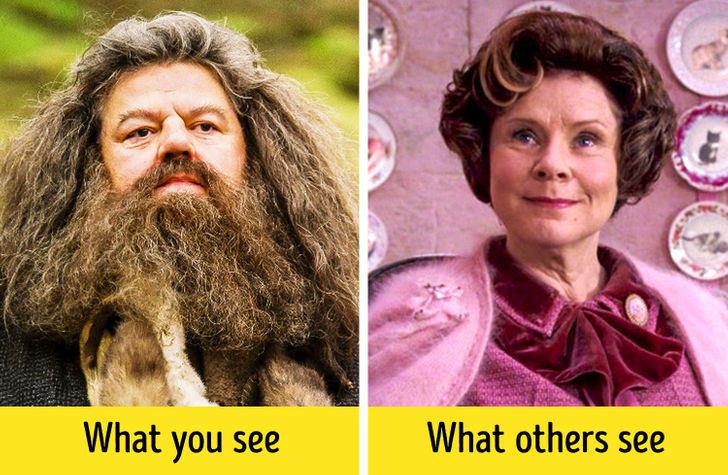My mom suffers from excessive altruism, she's so annoying :(
7 Unexpected Personality Traits That Almost No One Really Likes

It’s absolutely normal to dislike someone. People have always had to be suspicious of strangers just to survive in this world. Today, survival isn’t quite an issue anymore, but we all probably know a couple of people who annoy us for no reason. So what’s wrong with them?
Bright Side will tell you about some annoying features and habits of people we subconsciously try to avoid.
7. Excessive altruism
Kindness is a feature that we all appreciate. But sometimes people are just too kind and sacrificial and it annoys others. If you’re always nice and ready to help (even if this help will affect you), people may start treating you with suspicion.
Studies show that people hate both excessive selflessness and excessive selfishness. It doesn’t happen because people are ungrateful. The thing is, selfless kindness causes many questions: “What do they want?” or “What are they thinking about?” What’s more, no one wants to look “worse” and less selfless compared to someone who is really altruistic.
6. Illiteracy
People who make spelling mistakes don’t come across as reliable. You might be a nice, polite, and kind person in real life, but a few mistakes in your grammar in emails will probably affect people’s attitude toward you.
As for those people who judge people by the mistakes in their texts, scientists say that you are able to understand whether a person is an introvert or an extrovert by their reaction to typos and mistakes. Illiteracy often annoys introverts (who don’t like to communicate a lot and find it difficult to build social relationships). If you don’t pay attention to mistakes, you’re probably an extrovert.
But it’s important to be well-educated, and not just to make everyone love you. According to international educational organizations, intelligence level has an impact on a person’s success and wealth.
5. Name‐dropping
No one likes braggers (especially those who mention they know prominent people). Scientists from Switzerland have found out that name-dropping doesn’t have any positive impact. On the contrary, the more you speak about your famous “buddies,” the less people believe you. People think that you’re trying to manipulate them by name-dropping.
4. Social media stars
Social media accounts tell potential employers and other people a lot about a person. Sociologists and psychologists have decided to study this problem and have collected several indicators that could spoil your reputation.
- Too many pictures. There are people whose eating out turns into an on-the-scene food report (millions of photos of each dish from different angles and so on.) These people are treated with suspicion.
- Too many “friends.” As a rule, people don’t trust those who have thousands of friends and followers. They may think that social media fame is the only thing that interests this person. Scientists have even found out that the acceptable is somewhere in the range of around 338 online friends, so we don’t confuse or intimidate people.
3. Looking too happy
We believe that a smile can only bring positive emotions. But it appears that people whose smiles are too wide, annoy others.
Here’s what psychologists say: Excessive happiness and bliss cause dislike. People who are too happy and satisfied (for no good reason) look naïve and even ignorant.
Additionally, if you’re always positive and cheerful, you might always receive the most unpleasant tasks. Since people will think that you’re not smart enough to assess the difficulty of tasks that come your way, and assume you won’t refuse to do them.
2. Difficult names
Sometimes we don’t have to do anything to cause people’s annoyance: our name does the job just fine. 5 studies have proven that difficult-to-pronounce names are judged less positively than easy-to-pronounce names. So people with simple names are often successful and more respected.
So why does this happen? Our brain always treats new and unusual things with suspicion. If a name looks too long or strange, its owner becomes a suspicious person automatically. Of course, this happens subconsciously. Have you ever noticed the fact that celebs often change their long and weird names to something more simple, for the masses?
1. Excessive shyness
People don’t like those who always criticize themselves. While trying to make a good impression on new friends or employers, some people hide their bragging under self-criticism. As a rule, these tricks don’t go unnoticed. Here’s an example: Imagine that you’re asked about your weaknesses in a job interview.
Wrong answers:
- “I’m a perfectionist. I can’t sleep if something needs to get done and I can’t do otherwise.”
- “I’m a workaholic, weekdays and weekends are the same to me. Though I can’t really remember what my family looks like anymore.”
No one will believe these words. Fake shyness also affects a person’s reputation and stops them from climbing the career ladder because this behavior looks insincere.
Bonus: About people who like no one and nothing.
Some people always criticize everything, simply because they can’t stop doing it. You just have to accept it. The Grinch hates Christmas, Scrooge McDuck despises poor people, and some people simply criticize everything. Psychologists have a couple of theories explaining this issue:
- Social disposition. The disposition can be both positive and negative. People with a negative dispositional attitude are prone to a negative assessment of things and events: they’ll always find something they won’t like. People with a positive dispositional attitude always try to look on the bright side. Psychologists are sure that this disposition is like a character trait — it’s really difficult to change your perception.
- Social anxiety. People with an irrational fear of being watched or judged start criticizing others, so they don’t feel alone.
Are there any people who might dislike you for no reason? What do you think?
Comments
This article is indeed trying to get somewhere but overall it's a poorly written. Most of it subjective.
Related Reads
25 Tiny Animals That Are as Charming as They Are Small

I Refused to Host My Stepdaughter’s Birthday, Now I’m Excluded From the Party
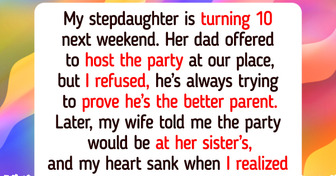
I Got Offered Double Pay at a Competitive Company, Now HR Got Involved
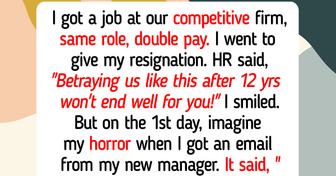
20 Job Interviews That Went Off Script and Ended in the Most Unexpected Way
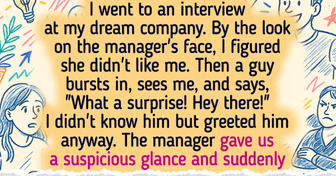
I Refused to Pay for My 80-Year-Old Nana’s Medical Bills—My Kindness Meant Nothing to Her

14 Stories That Prove Relationships Can Take the Wildest Turns
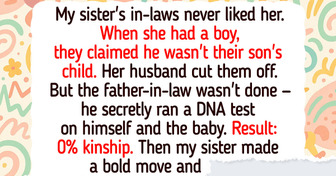
12 Moments That Show Kindness Isn’t Weak—It’s Power in Disguise
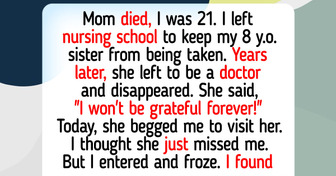
I Refused to Babysit Under My DIL’s Rules—I’m Not “Learning” How to Be a Mom
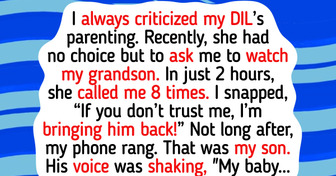
I Refuse to Be My Stepmom’s Free Maid This Christmas—Now the Family Is in Crisis

12 Unexpected Acts of Kindness That Finally Forged Love in These Blended Families
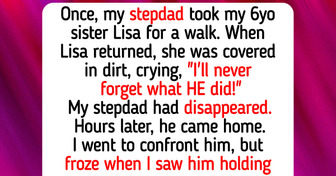
I Reported My Boss—HR Ignored Me Until I Did One Simple Thing
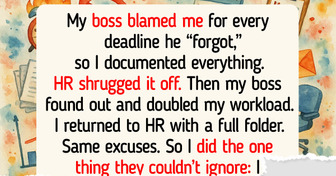
18 Stories That Prove Kindness Can Come From the Most Unexpected Places
